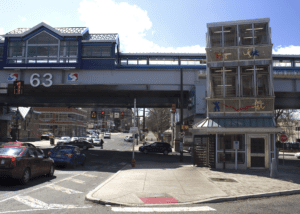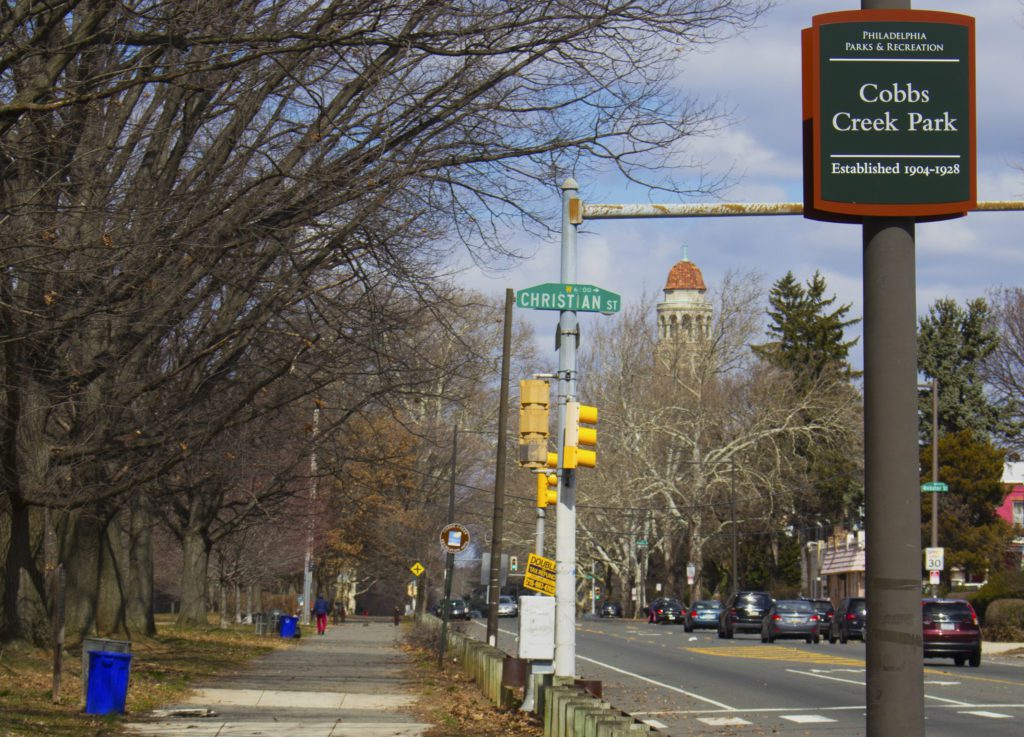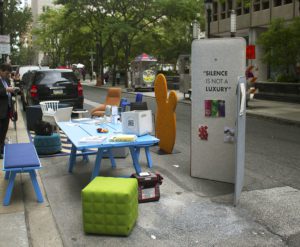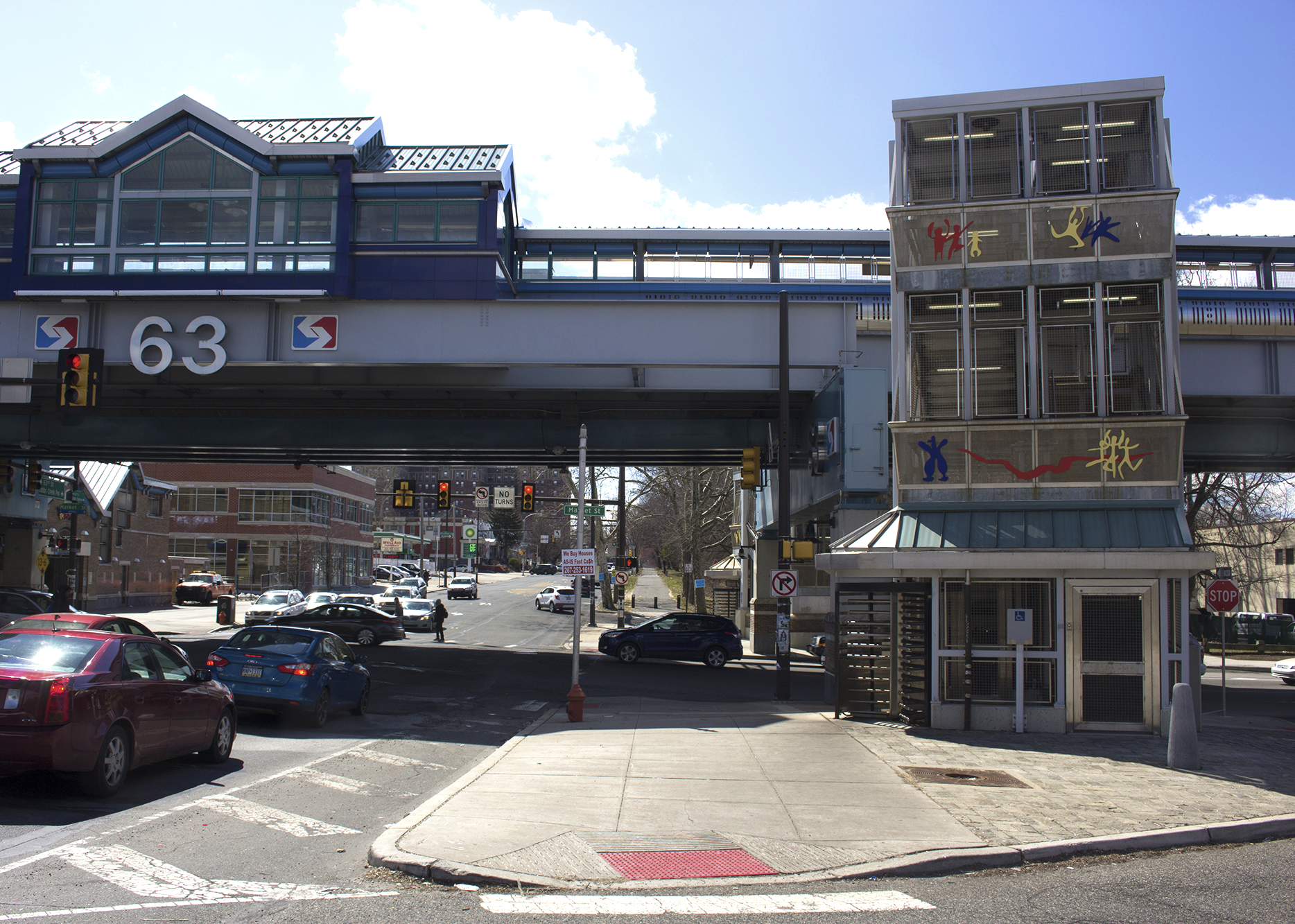
July, 5, 2021 – Communities identified by the Environmental Protection Agency (EPA) as Environmental Justice communities are more likely to experience issues that negatively impact pedestrian safety and result in higher rates of pedestrian fatalities from traffic crashes. According to PennDot, fatal or serious injuries from crashes are three times more likely to occur in low income communities and 30% more likely to occur in communities of color. These communities face real challenges to pedestrian safety including poor sidewalk conditions, lack of access to green space, and under funding for maintenance and safety enhancements.
Sidewalks are the foundation for walkability, and sidewalk condition is a major factor in deciding how people travel. Philadelphia has hundreds of miles of sidewalks in poor condition, with no concrete plan to fix them. The Council and its volunteer pedestrian advocacy group Feet First Philly work to improve the pedestrian environment in every neighborhood, protect the rights of pedestrians, and encourage walking as a mode of transportation, exercise, and recreation through public education, outreach, advocacy, and technical assistance to communities.
In 2020, Feet First Philly launched a sidewalk campaign to fund sidewalks like streets. Currently, homeowners are responsible for costly sidewalk repairs, which forms a barrier and liability for many residents who cannot afford to fix damaged sidewalks. Feet First Philly’s sidewalks campaign asks the city to set aside $500,000 to hire a full time sidewalks coordinator, conduct a sidewalk master plan, and create sidewalk repair funding strategy, as recommended by a 2018 Sidewalk Policy Transportation Community Development Initiative (TCDI) to the Office of Transportation & Infrastructure Systems.
Feet First Philly and the Council advocated for the sidewalk campaign through an op-ed in the Inquirer calling for the city to take action, by meeting with Councilmembers in preparation for budget season, and sending an action alert urging Mayor Kenney and City Council to fund sidewalks in the next budget. This spring, the Council and Feet First Philly joined 24 organizations advocating for Livable Communities budget requests, including dedicated funding for Vision Zero, transit, and sidewalks.
In addition to this budget campaign, the Feet First Philly Pedestrian Advocacy Guide connects people to city agencies and helps them navigate services to address safety concerns. Feet First Philly also developed two walk audit tools to engage residents, neighborhood leaders, students, and stakeholders to identify risks to pedestrians and connect residents to resources that can address these concerns.

Highway design that prioritizes vehicle speed over pedestrian safety is a legacy issue that disproportionately affects communities of color in Philadelphia. Pedestrians accounted for just 7% of people involved in crashes from 2014 to 2018, but made up 40% of people killed in crashes during this period. Highly trafficked roads like Cobbs Creek Parkway make up the High Injury Network, the 12% of all Philadelphia roads that claim 50% of all traffic deaths and severe injuries.
For the past two years, the Council has connected residents, stakeholders, elected officials, and city agencies to work together to address the largest hurdle to accessing Cobbs Creek Park and Trail, which is the dangerous Cobbs Creek Parkway. The Parkway is a physical and mental hurdle for residents trying to access the park and connected trails and dangerous speeds, reckless driving, and lack of safe crossings are barriers that make the park and trail difficult and dangerous to visit. Tragically, the lives of three people were taken along the Parkway in the past year.
The Council partnered with Cobbs Creek residents to address their concerns and demand change. This resulted in the installation of speed hump and delineator posts. The Council continues to advocate for safety upgrades, and the City recently applied for funding to install new state of the art pedestrian crossings along Cobbs Creek Parkway. These would fill crossing gaps that stretch more than a mile and a half long and increase accessibility to this important trail and greenspace in one of the most dense areas of the city.
For more information contact Will Fraser, Transportation Project Manager, wfraser@cleanair.org

Philadelphia, PA [March 18, 2021] – Clean Air Council and Feet First Philly, in partnership with the Philadelphia Department of Public Health, are pleased to announce the recipients of our first pedestrian enhancement mini-grants. The chosen projects represent seven distinct neighborhoods and seven distinct strategies to address barriers to walking and rolling.
Chew and Chelten CDC/RCO – The project revamps an unoccupied newsstand with a community informed mural painted by a local artist Serafina Harris. The mural will exhibit, “images of positive and daring young black men and women stepping into a better future.”
Hunting Park Community Garden – Funding to be used to create an outdoor community space that includes tables, chairs, and a summer misting fan in partnership with the Free Library of Philadelphia and Lenfest Center.
Kensington Neighborhood Association – The Association plans to demolish and repour a concrete sidewalk that is currently damaged to create an “access point for any interested gardeners to come and enjoy the garden space.”
Cobbs Creek Ambassador Program – The project engages volunteers to “adopt sections of the park to clean up,” creating a model of hyper-local resident led stewardship with a low barrier to entry. Funding will go to “ambassador startup kits” that include cleanup essentials like, trash bags, gloves, shovels, rakes, brooms, and trash cans.
Village Arts and Humanities – Located in the Fairhill-Hartranft section of Philadelphia, received funding to install a creative art crosswalk to increase the visibility of a pedestrian space along a commercial corridor.
The Enterprise Center CDC in collaboration with Blackwell Regional Library in West Philadelphia will use mini-grant funds for a parklet project on 52nd Street featuring a “mix of both fixed and removable seating, greenery, and public art.”
Centennial East Parkside CDC working with WeWalkPHL will survey residents to identify both physical and social barriers to pedestrians when accessing West Fairmount Park from the Parkside neighborhood. The survey will take place during their Juneteenth celebration to “assess the neighborhood’s walkability, photograph and document problem areas, and brainstorm creative approaches.”
Read these quotes from some of the mini-grant recipients
“Centennial Parkside CDC is excited about the opportunities in receiving the Feet First Philly Pedestrian Mini-Grant. It will allow us to more thoroughly survey and shine a light on pedestrian safety as our organization becomes increasingly more aware, thus more sensitive to the needs of our community to improve safer walkability.” – Tashia Rayon, Program Director Centennial Parkside CDC
“I love Cobbs Creek. This is where I live, work, and play. That’s why I really care about keeping it beautiful. I had no idea resources like this mini-grant were available. When I started facilitating Power Hour Cleanups (where I engage other neighbors in cleaning up a section of Cobbs Creek that I’ve adopted), I just used my own resources for supplies but now, I don’t have to have that financial burden. More importantly, I can encourage other people to adopt and clean up their own section of Cobbs Creek and can use these funds to provide them with the right tools. I am so thankful to the Clean Air Council and Feet First Philly for making this possible.” – Temwa Wright, Cobbs Creek Ambassador Program
“The Enterprise Center CDC is excited to be awarded a Feet First Philly grant and to partner with Blackwell Regional Library to pilot a parklet at the library location on 52nd Street. Piloting new things and achieving small wins are the steps we must take as we work towards larger neighborhood revitalization goals over time. The 52nd Street business corridor is the ‘Main Street’ of West Philadelphia, and Blackwell Library is a key anchor institution along the corridor. We hope with this project to demonstrate innovative ways to engage businesses and community members while making the street a safer and more inviting place for doing business, shopping, and community gathering.” – Jesse Blitzstein, Enterprise Center CDC

